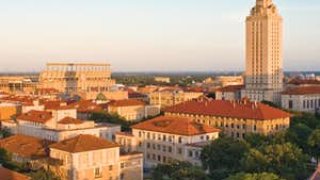
The University of Texas says beginning next spring Longhorn student-athletes can receive education-related compensation now permitted by the NCAA and Big 12 after a recent Supreme Court decision.
The school said Wednesday that eligible student-athletes will receive "additional education-related benefits and direct financial support in the form of academic achievement awards, up to the legally established maximum of $5,980 per year" as a result of NCAA v. Alston.
Eligible student-athletes would receive their first academic achievement award of $2,990 during the 2022 spring semester.
"We're excited to be able to provide our student-athletes with additional support, but as importantly, to continue to initiate programs that focus on their academic commitment and success," said UT Vice President and Athletics Director Chris Del Conte in a statement from the school. "Our student‐athletes have a wonderful opportunity to engage in a world‐class academic experience while pursuing athletic excellence at the highest level."
Get DFW local news, weather forecasts and entertainment stories to your inbox. Sign up for NBC DFW newsletters.
UT said Wednesday that student-athletes will be able to earn future academic achievement awards totalling $5,980 each academic year, half each semester.
"The additional academic benefits will be awarded after review and confirmation of academic progress and program engagement," the school said.
"We take a holistic approach to the academic and athletic experience while steadfastly encouraging our student-athletes to pursue meaningful and beneficial course work, and to be involved in our enrichment programs like 4EVER TEXAS and LEVERAGE, as they train for excellence in their sports," Del Conte said. "This additional academic benefit will be another way to bring out the very best in our student-athletes. I can't thank President Jay Hartzell and our campus leadership enough for helping us make this happen."
Texas News
News from around the state of Texas.
The NCAA argued any form of payment to student athletes would mean that they couldn't maintain their amateur status. The Supreme Court had a different opinion.
In the Alston decision, the Court ruled unanimously in favor of the athletes with Justice Brett Kavanaugh writing, "Nowhere else in America can businesses get away with agreeing to not pay their workers a fair market rate on their theory that their product is defined by not paying their workers a fair market rate. And under ordinary principles of antitrust law, it is not evident why college sports should
be any different. The NCAA is not above the law."